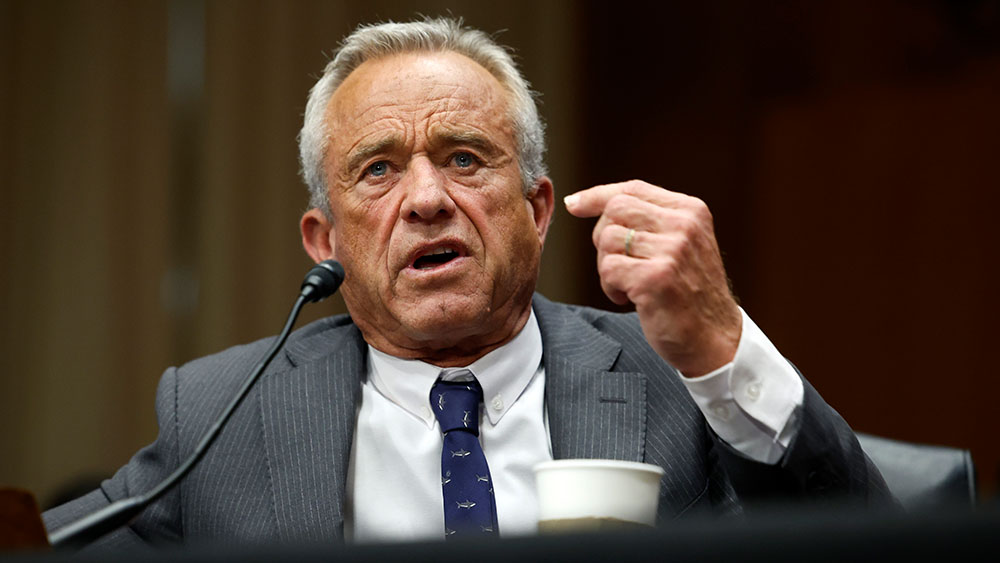Flawed models were used in studies claiming childhood vaccines save millions of lives, expert warns
02/04/2025 / By Cassie B.

- A new paper by all-cause mortality expert Denis Rancourt challenges claims that childhood vaccines have saved millions of lives, citing flawed models and unreliable data.
- Vaccine efficacy models rely on untested assumptions, ignore real-world complexities and are often based on industry-funded trials with skewed results.
- Rancourt argues vaccine campaigns in low-income countries divert resources from addressing root causes of child mortality, like malnutrition and poor living conditions.
- The paper suggests vaccine rollouts may have contributed to 100 million infant deaths globally since 1974, based on slowed declines in infant mortality rates.
- Rancourt calls for greater transparency in vaccine research, questioning the influence of pharmaceutical companies on public health policies.
Public health agencies and medical journals have long touted childhood vaccines as a miracle of modern medicine, claiming they have saved millions of lives globally. But a groundbreaking paper by Denis Rancourt, Ph.D., published by the Canadian nonprofit Correlation, reveals that these claims are built on shaky foundations.
Rancourt, an expert in all-cause mortality, argues that the models used to support these assertions are riddled with flawed assumptions, unreliable data, and a disregard for real-world complexities.
The paper, released this week, challenges the narrative that vaccines are universally beneficial, exposing how profit-driven pharmaceutical companies and public health agencies have oversimplified the science to push mass vaccination programs. Rancourt’s findings suggest that these programs may not only fail to save lives but could also be contributing to increased infant and child mortality in some cases.
The flawed foundations of vaccine claims
Rancourt’s analysis focuses on the models used to estimate lives saved by childhood vaccines, particularly in low-income countries. These models, he argues, rely on “tentative and untethered” assumptions about vaccine efficacy, disease prevalence and virulence — none of which are grounded in real-world data. For example, the models assume that no child can die from a vaccine, that all children are equally healthy and that vaccines are the sole factor preventing disease.
One of the most glaring flaws is the reliance on clinical trials funded by the pharmaceutical industry, which Rancourt describes as “systemically unreliable.” These trials often test vaccines on healthy children in controlled environments, ignoring the vulnerabilities of children in low-income countries who may suffer from malnutrition or lack access to clean water. Additionally, trials rarely use true placebos or monitor long-term safety, skewing the results to overstate benefits and understate risks.
Rancourt highlights how vaccine campaigns in low-income countries divert resources away from addressing the root causes of child mortality, such as malnutrition and poor living conditions. For instance, the World Health Organization (WHO) credits the measles vaccine with saving the most lives, but Rancourt points out that measles-related deaths are often tied to malnutrition. Improving living standards and access to clean water would likely have a far greater impact on reducing mortality than vaccines alone.
Vaccines and increased mortality
Perhaps the most controversial aspect of Rancourt’s paper is his claim that vaccine rollouts may have contributed to approximately 100 million infant deaths globally since 1974. He bases this estimate on an analysis of all-cause infant mortality rates, which showed a slowdown in the decline of mortality rates following major vaccine rollouts.
For example, the introduction of the hepatitis B and pneumococcal conjugate vaccines in the 1990s coincided with a marked deceleration in the decline of infant mortality rates. Had the pre-vaccine decline continued, Rancourt estimates there would have been 100 million fewer infant deaths.
This finding aligns with independent observational studies, such as those linking the diphtheria-tetanus-pertussis (DTP) vaccine to increased infant mortality in low-income countries. Rancourt cautions that his model is simplified and does not account for other factors like economic transformations, but he insists the correlation is too significant to ignore.
Rancourt’s paper underscores the need for greater transparency in vaccine research and policymaking. It also raises critical questions about the role of pharmaceutical companies and their influence on public health agencies. Rancourt notes that medical journals have become “an extension of the marketing arm of pharmaceutical companies,” leading to the proliferation of flawed models that serve corporate interests rather than public health.
A reckoning for vaccine policy
Rancourt’s findings challenge the status quo, exposing the shaky foundations of claims that childhood vaccines have saved millions of lives. While vaccines can play a role in preventing disease, the paper highlights the dangers of oversimplifying their benefits and ignoring their risks.
As public confidence in vaccines wanes—evidenced by a recent Gallup poll showing only 40% of Americans consider childhood vaccines “extremely important”—Rancourt’s work serves as a wake-up call. It’s time to move beyond black-and-white narratives and embrace a more nuanced understanding of vaccines, one that prioritizes informed consent, transparency, and addressing the root causes of child mortality.
Sources for this article include:
Submit a correction >>
Tagged Under:
. vaccines, biased, Big Pharma, childhood vaccines, Fact Check, infant mortality, measles, pharmaceutical fraud, rational, research, rigged, science deception, science fraud, skeptics, truth, vaccine research, vaccine wars
This article may contain statements that reflect the opinion of the author





















